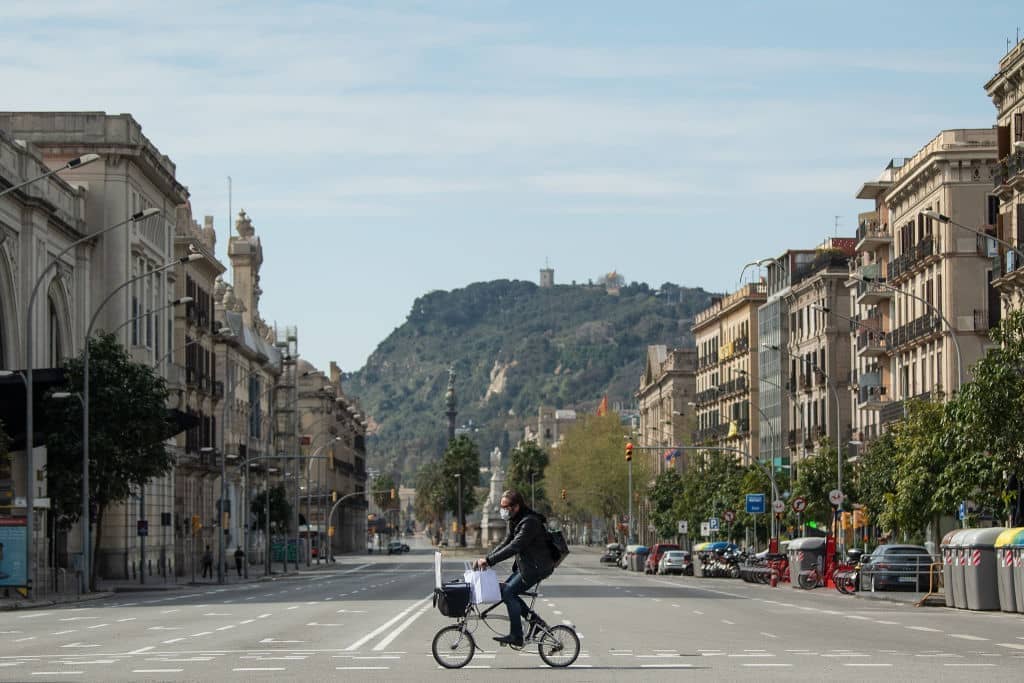In his fascinating interview in the current UK issue of The Spectator, Rishi Sunak revealed the black hole at the center of the British government’s 2020 lockdown policies. The former chancellor claims that two crucial things were lacking at the time of the lockdowns — political candor and a “grown-up conversation” between Boris Johnson’s government and the quarantined population. Two and a half years later, though, there’s been no such conversation, especially in the European countries where the legality of lockdowns has already been questioned.
France was one of the first countries to challenge hastily-enacted measures that criminalized normal behavior. In May 2020, lawyers appearing in the country’s highest court of appeal focused on two key issues — whether the governmental decrees ordering quarantine were legal, as decrees didn’t usually have the power to alter criminal law; and whether regulations with serious penalties for non-compliance (i.e. fines or prison sentences) could be based on imprecise definitions (i.e. what constitutes an “essential” item or a “valid” reason for leaving your house).
The same month, France’s highest administrative court ordered that the government’s ban on worship in public places be lifted, declaring it “manifestly illegal.” Individual court cases aside, though, there’s been little public discussion in France about whether lockdowns were permitted under the French Constitution of 1958, their effectiveness in curbing contagion or the extent and nature of their side effects.
Spain’s quarantine, by contrast, has received close legal scrutiny. In July 2021, the Spanish Constitutional Court ruled that the ten-week lockdown imposed by Pedro Sánchez in March 2020 was illegal. Six out of eleven judges decided that quarantine consisted of a temporary suspension of fundamental citizens’ rights, not their limitation, and that such a radical measure is only permissible under the State of Emergency, the most serious of three states of national alert defined in the 1978 Constitution. Instead, Sánchez activated the less serious State of Alarm, for which no prior parliamentary approval is necessary, but which only allows for partial limitation of citizens’ rights.
Reacting to the court’s decision, Sánchez reiterated the narrative which Johnson also relied on to justify lockdown, saying that it had been “absolutely essential to save lives.” But he failed to explain why he was so convinced, at the time, that the benefits of quarantine outweighed the socioeconomic and human damage it would cause. Sunak’s revelations suggest one obvious answer: that no such cost-benefit analysis had been performed and that lockdown was therefore a step into the unknown, a huge gamble.
Over a year after the court’s lockdown ruling, none of Sánchez’s political adversaries has challenged him on the matter. The Spanish media, too, has been surprisingly quiet. A possible and likely reason for this silence is that many people in Spain (and not just in Spain) believe that governments rightly awarded themselves unlimited power throughout the pandemic, including the capacity to illegally suspend basic rights. It’s mainly to challenge this disastrous assumption that a rigorous analysis of lockdowns is necessary, especially in countries that are still recovering from their after-effects.
In Italy, an emeritus judge of the country’s Constitutional Court has argued that the quarantine decree passed in February 2020 was illegal. Italy’s 1947 Constitution, he explained, specifies three conditions that must be met if the government proposes to limit citizens’ fundamental rights in an emergency — but none of them were. This illegal decree was replaced a month later, but the former judge says the damage had already been done: “in not pursuing the route set out by all the relevant norms and procedures, the [Italian] government has created a dangerous precedent.”
Sunak doesn’t discuss the ways in which Johnson enforced lockdown, but on inspection they seem as suspect as those deployed by the Italian and Spanish governments. Former Supreme Court judge Jonathan Sumption has argued that, of the three acts Johnson could have used to deal with the outbreak of Covid in March 2020, he deliberately chose the one which faced the least parliamentary scrutiny.
The Public Health Act of 1984, claims Sumption, was chiefly designed to limit the movements of infected people — it contains nothing that permits the control of non-infected people, let alone the imposition of anything as drastic as lockdown. The Act’s wording is so vague, he says, that it’s bound by the principle of legality, according to which “general words are not to be read as authorizing the infringement of fundamental rights.”
If Britain and Europe are to finally have a “grown-up” conversation about lockdowns, politicians could do worse than admit that, in early 2020, hardly anything was known about their effectiveness, legality or side effects. That would be a good start to a long-overdue reckoning.
This article was originally published on The Spectator’s UK website.


















